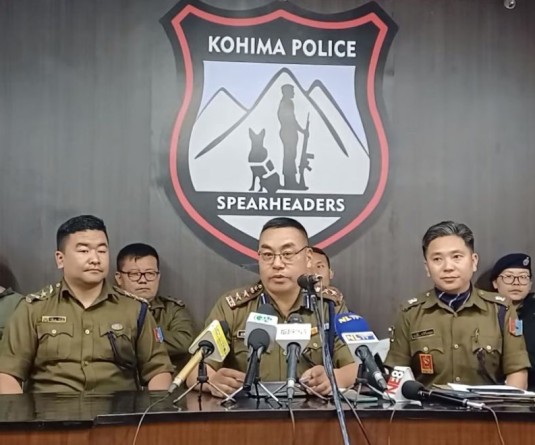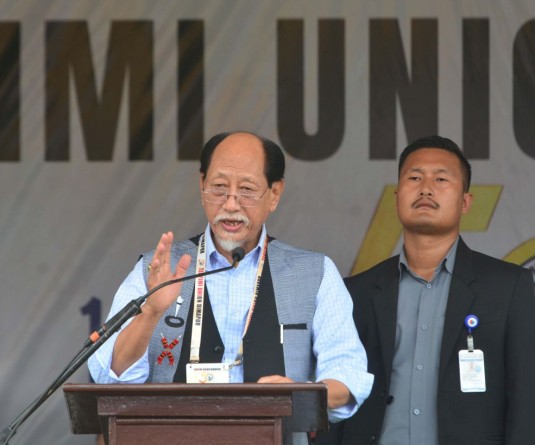
Women Farmers celebrates Biological and Cultural Diversity at Akhegwo Village
Phek, December 14 (MExN): “Defending our biodiversity is the key to building a resilient community in the face of climate change and modern development pressures” was the key message at the Biodiversity Festival, organised by the North East Network (NEN) and hosted by Akhegwo Village in Meluri block of Phek district on December 13.
Dwelling on the festival theme ‘Building Resilience for a Food Sovereign Community’, Wekoweu Tsuhah, NEN, in her keynote address highlighted the forces of market and science that has threatened indigenous communities’ local food systems and culture, a press release from NEN stated.
“These threats are further exacerbated by climate change impacts, making communities vulnerable to poverty, food and nutrition insecurity, and losing community’s control over natural resources.”
As such, Tsuhah urged the farming communities to conserve and exchange traditional seeds amongst communities, promote climate resilient crops such as millets and local cuisines. She called on the local communities to define our own alternative development that is sustainable and inclusive; to recognize the contribution of women in biodiversity conservation, and also engage youth in community development process. The seed exchange ceremony among four villages namely – Akhegwo, Meluri, Chizami and Phor was a reaffirmation that “communities can defend their ecological and cultural rights only through solidarity, sharing and exchange of knowledge and seeds amongst farming communities.”
Extending his solidarity over the issue of safeguarding biodiversity, Z Chumda Tsang, President, Apoksa Range Public Organization (ARPO) expressed his hope that the festival will revive crops that has significant longevity. Exhorting the gathering Shilu Thurr, Vice President, Pochury Mothers’ Association stated that Nagas for centuries have survived mostly depending on agriculture and stressed that though we cannot lose our cultural identity which is strongly rooted in our food and agriculture systems.
Speaking on the importance of millets in the community’s culture, Ghenyi Chugho, Head GB Akhegwo village acknowledged that the introduction of certain income generating crops has led to decrease in crop diversity. According to him, millet was part of the community’s culture that needs to be revived, and to collectively cultivate to minimize pests attack on the crops. “Biodiversity is considered as centre of life and living,” Seno Tsuhah, NEN in her concluding remarks stated that “where there is biodiversity, there is life.”
She added that ‘protecting our natural resources is a political activity’. She encouraged farmers present to consider and protect the forest resources. The programme was moderated by Stephen Gangmei, NEN. Earlier, the biodiversity festival began with Ghenyi Chugho, Head GB Akhegwo village inaugurating the exhibition of cultivated and uncultivated food diversity by the participating villages.
The festival saw a gathering of 150 participants comprising women farmers from the four villages, and officials of Pochury Mothers’ Association (PMA), Akhegwo Area Public Organisation (ARPO), and community leaders from Akhwego.





